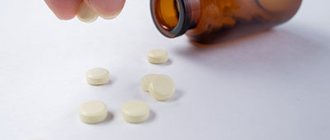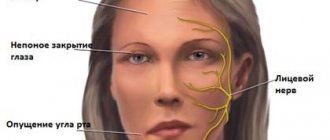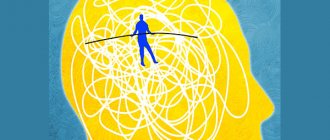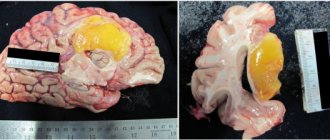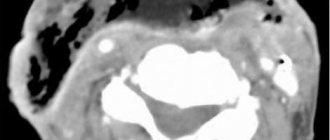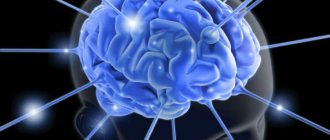When a person is in an unstable mental state, he often has a feeling of anxiety or panic, doctors prescribe him special medications. Tranquilizers and sleeping pills, when used uncontrolled, cause severe addiction. Coping with drug addiction on your own is quite difficult. In such situations, the assistance of qualified doctors is usually required.
- Read in the article:
- Drug addiction
- What is drug addiction?
- Mental dependence on drugs
- Causes of pill addiction
- Stages of drug addiction
- Consequences of drug addiction
- Types of drug addiction
- Dependence on psychotropic drugs
- Painkiller addiction
- Tranquilizer addiction
- Sleeping pill addiction
- Antidepressant addiction
- Prevention of drug addiction
- The danger of drug addiction
- Drug withdrawal
- Drug overdose
- Treatment methods for drug addiction
- Psychotherapy for drug addiction
- Getting rid of drug addiction on your own
- Treatment of drug addiction in the clinic
Treatment prices:
| Sign up for a free and anonymous consultation with a narcologist | 0 ₽ |
| Initial consultation with a narcologist | for free |
| Consultation with a psychologist in person or Skype | 3 000 ₽ |
| Psychiatrist consultation | 5 000 ₽ |
| Psychodiagnostics / pathological diagnostics | 7 500 ₽ |
| Narcopsychotherapy | 50 000 ₽ |
| Consultation with a psychologist and selection of a treatment and rehabilitation program for an addict | for free |
| Intervention session | 12 000 ₽ |
| Social rehabilitation of alcohol addicts | for free |
| Outpatient rehabilitation in Moscow | 33 000 ₽ |
| Standard rehabilitation program | 40 000 ₽ |
| Intensive rehabilitation program | 80 000 ₽ |
| Premium rehabilitation program | 120 000 ₽ |
| Medical and social rehabilitation (21 days) | 150 000 ₽ |
| Rehabilitation Spain, Bulgaria | 200 000 ₽ |
| VIP rehabilitation program | 350 000 ₽ |
| Online addiction rehabilitation course | 28 000 ₽ |
| Rehabilitation of age-related alcohol addicts | 50 000 ₽ |
| Rehabilitation of drug addicts | 60 000 ₽ |
| Adolescent social-psychological-pedagogical rehabilitation | 70 000 ₽ |
| Psychotherapy | 5 000 ₽ |
| Family psychotherapy | 6 000 ₽ |
| Support groups for loved ones of addicts | for free |
| Webinars for relatives of addicts | for free |
| School for codependents | 3 000 ₽ |
| Transfer support | negotiable |
| Motivation for treatment | 6 000 ₽ |
| Escort to the clinic | 6 000 ₽ |
| Testing (urine/blood/hair) | specify |
Expand
Still have questions? Call us!
8
Free consultation and appointment
Cost of services
| ADDICTION | |
| NAME OF SERVICE | price, rub. |
| Treatment in hospital: | |
| Economy class room/night | 5,400 rubles |
| Chamber Standard | 6,900 rubles |
| Superior double room/day | 7,900 rubles |
| Single superior room/day | 9,500 rubles |
| Coding: | |
| Naltrexone implantation – up to 3 months | 24,500 rubles |
| Naltrexone implantation – up to 5 months | 29,500 rubles |
| Coding from 3 months | 28,000 rubles |
| Coding from 6 months | 45,000 rubles |
| Coding from 10 months | 75,000 rubles |
| PROMOTIONS AND DISCOUNTS | |
| When applying again | 5% discount on treatment |
| Disabled people and war veterans | 5% discount on treatment |
| Large families | 10% discount on treatment |
* Dear patients! The administration tries to promptly update the price list posted on the website, but in order to avoid possible misunderstandings, we ask you to clarify the cost of services on the day of your call by calling 24/7.
The posted price list is not an offer.
Get a free consultation
+7(495) 798-30-80
The extent to which treatment for drug addiction is necessary can be determined experimentally. Thus, in the case of taking a placebo, when a persistent effect similar to the use of a real drug is manifested, conclusions are drawn about psychological dependence. If the addiction is of a different kind, the so-called physical (chemical), then when stopping the medicine the patient will experience characteristic discomfort and even “withdrawal”.
Drug addiction
Drug addiction develops with prolonged use of certain drugs. The emergence of a constant need to calm down with the help of medications develops gradually. Being in a state of depression, a difficult life situation, or anxiety, many people see a solution to the problem only through the use of sedatives.
What is drug addiction?
When using psychotropic drugs, there is a strong effect on the central nervous system. The person experiences a state of euphoria and lightness. Hallucinations often occur and lethargy is present. With prolonged use of medications, withdrawal syndrome appears, accompanied by negative symptoms: aggression, irritability, anxiety and increased sweating. It is these unpleasant symptoms that force a person to take drugs again.
Mental dependence on drugs
Drug addiction leads to the rapid development of psychological attachment. A person's thoughts are always focused on whether he has pills. If the drug is missing, panic sets in. The addict believes that his normal state depends only on taking medications, and thanks to them his health is stable. Removing mental dependence is one of the main tasks in the treatment of drug addiction.
Causes of pill addiction
There are two main types of drug addiction.
- The first occurs when a person takes pills that are prescribed for certain diseases to relieve the symptoms but not the cause. Such medications are often prescribed for severe headaches, insomnia, and nervous disorders. For this, antidepressants, tranquilizers, painkillers or antipsychotics are used. Dependence forms if treatment of the underlying disease is not completed.
- The second type of addiction is more complex. An addiction is formed when the drug is included in metabolic processes, and if it is rejected, serious disruptions in the functioning of internal organs occur.
Stages of drug addiction
There are no absolutely safe medicines. Each type of drug should be used as prescribed by a doctor in the correct dosage. If a person begins to increase the dose to improve his mental state, addiction forms. The body quickly adapts to large amounts of medication and can no longer function normally without doping. At the initial stage it is much easier to get rid of addiction. At a severe stage of development, longer time and complex treatment are required.
Treatment calculator
Field score:
Total score:
Patient age
Length of use
What he uses Has he previously undergone treatment Consent to treatment Concomitant diseases Employment
Waiting for values to be entered
Consequences of drug addiction
Exceeding the dose of the drug for a long period leads to serious consequences. Independent refusal provokes the appearance of signs of withdrawal syndrome, characteristic of alcoholics and drug addicts, with all the ensuing consequences. The functioning of the heart and digestion is disrupted, severe headaches appear, and depression develops. Just like drug addicts, there is a high risk of overdose, which can be fatal.
Types of drug addiction
Drug abuse leads to two types of addiction:
- Psychological
. Develops immediately after discontinuation of the drug. In the absence of the drug, a person becomes anxious and irritable. An irresistible desire to take the medicine appears, turning into an obsession. - Physical
. It is manifested by the occurrence of withdrawal syndrome after refusal to take the drug. A person experiences muscle pain, cramps, chills, and malfunctions in the internal systems of the body.
Any negative manifestations of addiction require professional help from doctors. You need to put on an IV to relieve withdrawal symptoms and cleanse your body of toxins.
Dependence on psychotropic drugs
Seduxin, nozepam, ephedrine, alprazolam and other psychotropic drugs are prescribed for neuroses and depressive states. Side effects with prolonged and uncontrolled use have too negative an impact on the psyche. With withdrawal and a lack of psychotropics in the body, a person begins to feel unwell. To get rid of addiction, replacement therapy is required, which is carried out in a clinic by qualified doctors.
Painkiller addiction
Typically, painkillers are used for headaches. Instead of looking for the cause of the pain, people begin to extinguish the symptoms by falling under the influence of the drug. Frequent use of analgesics and painkillers can be highly addictive, which is difficult to overcome on your own.
Tranquilizer addiction
Tranquilizers have different effects on the body. Dependence develops gradually and is expressed in aggravated withdrawal symptoms and frequent bouts of intoxication. The degree of severity depends on the type of drug, the dose used and the period of administration. Commonly used drugs include Relanium, phenazepam, lorazepam, diazepam, sibazon, medazepam.
Sleeping pill addiction
Many people suffer from insomnia for various reasons. Sedative medications help normalize sleep if the dosage is followed. Therefore, it is not recommended to use sleeping pills on your own. Barbiturates and other sleeping pills lead to severe drug addiction.
Antidepressant addiction
The danger of addiction to antidepressants is that all the signs and consequences of addiction are similar to drug addiction. A person lives only thanks to pills, and if he refuses, he feels helpless and irritable.
Still have questions? Call us!
8
Free consultation and appointment
Main forms of the disease: features and clinical signs
Depending on which drugs the patient takes, there are several forms of drug addiction.
Abuse of narcotic analgesics
Such medications are divided into natural (morphine, codeine, omnopon, etc.), obtained from natural raw materials, and synthetic (tramadol, promedol, etc.), which are almost identical in chemical structure to natural opiates. In medicine, such drugs are usually used to relieve severe pain and premedication (preparation for anesthesia).
In the therapeutic doses recommended by the instructions, narcotic analgesics have only a pronounced analgesic effect, practically without causing symptoms typical of drugs. However, unauthorized excess of the dosage prescribed by the doctor causes a state of euphoria, complacency, and emotional elation that is so desirable for many. The duration of intoxication depends on the dose taken and individual characteristics, but on average lasts up to 4–6 hours, after which another pill or injection is required.
Its absence leads to a gradual increase in withdrawal symptoms. The first symptoms appear on average 8–10 hours after the last dose of the medicine, reaching their peak on days 2–4. The following signs are characteristic of withdrawal:
- runny nose and constant sneezing, watery eyes;
- nausea and vomiting;
- increased heart rate, increased blood pressure;
- headache;
- weakness and constant drowsiness;
- tremor.
This condition persists for up to 7–10 days and is complicated by psychosis and generalized seizures. After this, for many months (up to six months or more), the patient suffers from insomnia, arrhythmia, thermoregulation disorders, vitamin deficiency and anemia against the background of decreased appetite.
Dependence on sleeping pills and sedatives.
Medicines in this group are prescribed very often for insomnia, anxiety and panic disorders, and neuroses. They are used in both therapeutic and pediatric practice. These are benzodiazepines, tranquilizers, antipsychotics, etc.
The state of drug intoxication resembles that of alcohol.
A person feels pleasant lightness, relaxation, and drowsiness. Possible sexual disinhibition. At the same time, speech slows down, coordination of movements and cognitive functions are impaired. Treatment of dependence on drugs of these pharmacological groups should begin immediately for several reasons:
- high probability of adverse reactions (suppression of respiratory and cardiac activity up to coma);
- rapid development of tolerance, which forces the addict to constantly increase the dose of the drug, and this, in turn, is fraught with overdose;
- the temptation to take it simultaneously with psychostimulants: sedatives enhance the effect of drugs and alcohol, but such a combination is very dangerous due to the high risk of severe and irreversible complications.
In addition to the “classic” symptoms of withdrawal syndrome, the following are characteristic:
- convulsions;
- anxiety and phobic disorders;
- very heavy sweating;
- temperature rise to critical levels.
The acute phase of withdrawal lasts from several days to 1–2 weeks (when using long-acting drugs).
Abuse of psychostimulants
Medicines such as Lyrica (pregabalin), Ritalin have a stimulating effect, eliminate pain, increase performance and cognitive function. They are used to treat attention deficit disorder, neurological pain, and anxiety disorders.
The picture of drug intoxication resembles the state after using small doses of methamphetamine and other synthetic drugs. This is a surge of strength and energy, psychomotor and speech arousal, increased sensory perception, libido.
The danger of drug addiction
Dependence on tranquilizers or antidepressants leads to dire consequences if not treated in a timely manner. A person under the influence of chemicals loses his mind and develops serious pathologies. Drug addiction leads not only to personality disintegration, but also to frequent withdrawal symptoms and overdoses. Both conditions often result in premature death.
Drug withdrawal
After stopping the medication, a person experiences withdrawal symptoms. Symptoms depend on the type of drug. The main signs of withdrawal syndrome are expressed in psychological disorientation, a feeling of fear and complete helplessness arises. Addicted people in a state of withdrawal experience fear, panic, and severe headaches.
Drug overdose
In case of a drug overdose, a person experiences the following symptoms:
- Restlessness or lethargy;
- Copious secretion of saliva;
- Pupil dilation;
- Tremor of the limbs;
- Reduced blood pressure;
- Breathing disorders;
- Hallucinations appear.
Severe overdose often leads to coma.
Treatment methods for drug addiction
Treatment of drug addiction includes complex measures. A difficult task is solved using several techniques; it requires a highly qualified doctor and a complete diagnosis of the body’s condition. Complete recovery from addiction is possible with an individual approach to each patient. Complex therapy and subsequent rehabilitation will help you get rid of severe addiction forever.
Psychotherapy for drug addiction
Getting rid of physical addiction to medications is half the success. It is important to carry out psychological work aimed at stopping taking medications. Only qualified psychologists and psychotherapists will be able to free the addict’s thoughts from unnecessary information. Drug treatment clinics provide personal and group motivational sessions. People learn to live without medications, cope with stress and problems without using psychotropic substances and sedatives.
Getting rid of drug addiction on your own
Getting rid of drug addiction on your own is almost impossible. With prolonged use of drugs, a person experiences irreparable changes in the psyche and develops concomitant chronic diseases. It is quite difficult to independently refuse a drug that stabilizes your mental state.
Symptoms of drug addiction
Diagnosis and treatment of drug addiction is carried out by our qualified specialists. They determine its degree of development and characteristics of its course in each individual case. However, some conditions can be determined independently:
- the occurrence of increasing pain for no reason;
- malaise, loss of strength;
- depressed and anxious state;
- absent-mindedness, dullness of attention;
- reduced reaction speed;
- rapid, causeless changes in mood;
- a sharp increase or decrease in blood pressure;
- disorders in the functioning of the gastrointestinal tract.
Specialists additionally identify disturbances in the vegetative-vascular system and can determine changes in the blood (its biochemical composition changes). Having determined the degree of addiction, the doctor will be able to select an individual rehabilitation course of treatment. Only complex therapy can cure pharmacological dependence.
Doesn't want to be treated?
We will help you find an approach to your loved one and convince them to seek treatment for addiction in your specific case.
- Help in persuasion
- Completely anonymous
- 24/7 psychological support
- For free

